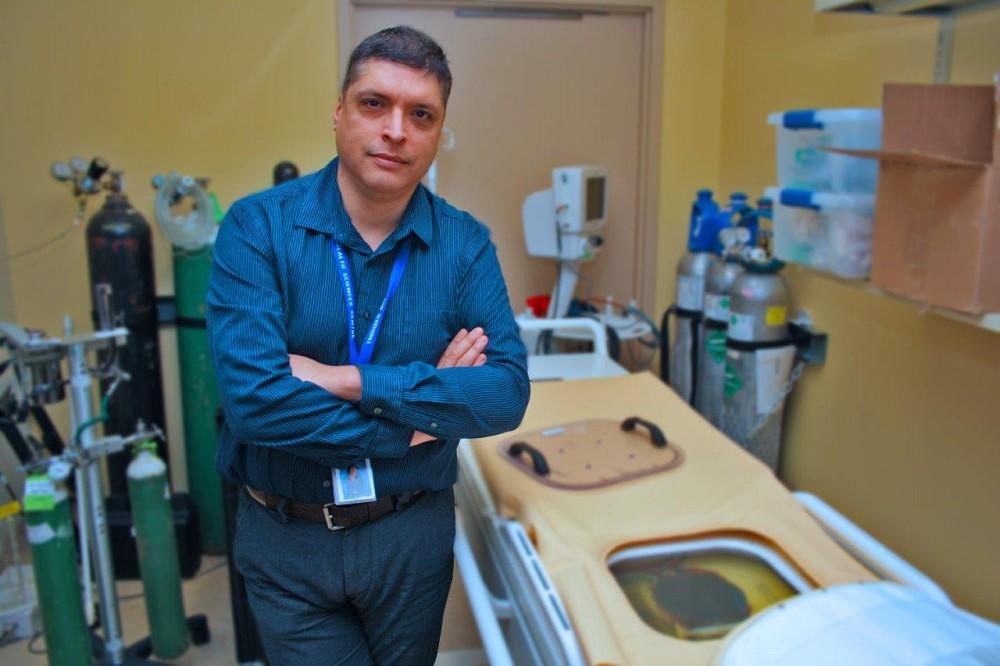Health Research Institute/Sunnybrook Collaboration Investigates New HIFU Treatment Option for Aggressive Cancer
by Graham Strong
 Dr. Sam Pichardo is helping oncologists at Sunnybrook Health Sciences Centre to develop a method of increasing the effectiveness of cancer treatments using HIFU.
Dr. Sam Pichardo is helping oncologists at Sunnybrook Health Sciences Centre to develop a method of increasing the effectiveness of cancer treatments using HIFU.A new series of clinical trials now underway at Sunnybrook Health Sciences Centre has a strong Thunder Bay connection. Dr. Samuel Pichardo, a research scientist at the Thunder Bay Regional Health Research Institute, is helping oncologists at Sunnybrook Health Sciences Centre to explore new methods of using high-intensity focused ultrasound (HIFU) to help treat cancer tumours in patients.
Dr. Pichardo brings his HIFU expertise to the project, working with Dr. Justin Lee (head and neck cancers) and Dr. William Chu (rectal cancer) to develop a non-invasive clinical approach that would increase the effectiveness of chemotherapy and/or radiation therapy with minimal side effects.
“Thunder Bay is helping to write the new book for multimodal cancer treatments using HIFU,” said Dr. Pichardo.
The technique, which is called MRI-HIFU, combines magnetic resonance imaging (MRI) and HIFU to heat the tumour to about 43 degrees Celsius. This “sensitizes” the tumour, making the other cancer treatments more effective. In lab tests, this approach was shown to shrink the tumour size more than with radiation treatment alone.
These positive results prompted the Sunnybrook clinical trial. The study is aimed at patients who have a recurrent cancer that cannot be treated with surgery.
“These are the patients who have tumours that don’t respond as well or are not eligible for traditional treatments,” Dr. Pichardo said. “We are offering these patients another treatment method where the standard of care is not working as well as we would hope.”
As of mid-February 2017, three patients had been treated in the trial: two with rectal cancer and one with head and neck cancer. All three seemed to respond well to the treatment and had no side-effects due to the MRI-HIFU treatment – though it is too early to call the trial a success.
“The results for the two patients being treated for rectal cancer so far are promising; however we cannot come to any firm conclusions about the treatment’s effectiveness based on the results from so few patients,” he said.
If this new technique ultimately proves successful though, any hospital with MRI-HIFU capabilities and a radiation therapy treatment program – including the Thunder Bay Regional Health Sciences Centre – could adopt the new treatment method, helping prolong the lives of many cancer patients. Future clinical trials may include patients with less aggressive forms of tumours.